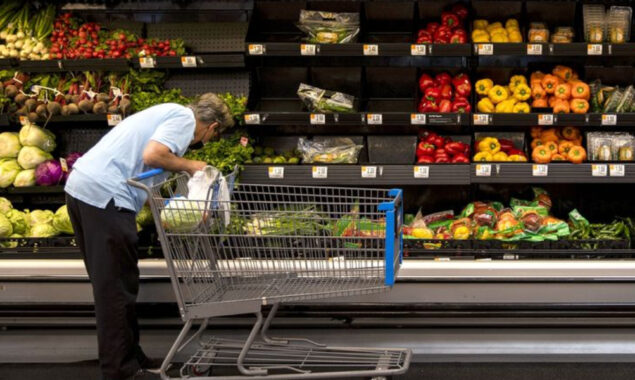
- US consumer spending fell in May as Americans struggled with historically high inflation levels.
- Personal incomes increased by 0.5%, but decreased when adjusted for inflation and taxes.
- The savings rate inched up to 5.4%, but is significantly lower than its pandemic-era peak of over 30%.
Last month, US consumer spending fell more than anticipated as American households struggled with historically high inflation levels.
The Commerce Department said on Thursday that personal consumption increased by only 0.2% in May, which was significantly less than the 0.6% increase recorded in April and below economists’ estimates of a 0.4% increase.
Taking inflation into account, spending fell 0.4% last month.
Read More: Twitter has caved into Elon Musk’s demand for access to its internal data
Consumer spending is the primary driver of the U.S. economy, and economists are intently observing any signs of a pullback. The numbers were released a day after a revision to the GDP report for the first quarter revealed that personal consumption expanded by only 1.8% instead of 3.1% as previously reported.
The fall in real consumer spending in May demonstrates that there is a limit to how much inflation American consumers are willing and able to take, according to Oxford Economics analyst Lydia Boussour.
It appears that American households supported their spending levels in the face of sky-high inflation by using their epidemic reserves. Personal incomes increased by 0.5% in May, but decreased by 0.1% when adjusted for inflation and taxes. In the meantime, the savings rate inched up to 5.4% but is significantly lower than its pandemic-era peak of over 30%.
Read More: US consumer confidence is at a 15-month low due to rising food & fuel prices
The decrease in expenditures occurred as general pricing pressures increased last month. The personal consumption expenditures price index increased by 0.6% month-over-month in May, following an increase of 0.2% in April. The annual PCE stayed at 6.3%.
Core PCE, the Federal Reserve’s preferred inflation gauge that excludes volatile items such as food and energy, up 0.3% month-over-month in May, the same as in April. Annual core PCE decreased to 4.7% from 4.9% in April, exceeding analyst projections of a decrease to 4.8%.
As officials strive to rein in inflation, the Fed has signalled that another 0.75 percentage point rate hike may be on the table at its meeting next month, having already delivered its first three-quarter point increase since 1994 this month.
Read More News On
Catch all the Business News, Breaking News Event and Latest News Updates on The BOL News
Download The BOL News App to get the Daily News Update & Follow us on Google News.




